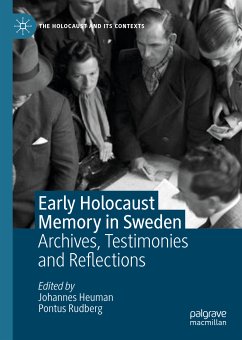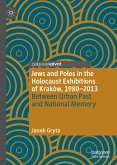This book investigates the memory of the Holocaust in Sweden and concentrates on early initiatives to document and disseminate information about the genocide during the late 1940s until the early 1960s. As the first collection of testimonies and efforts to acknowledge the Holocaust contributed to historical research, judicial processes, public discussion, and commemorations in the universalistic Swedish welfare state, the chapters show the challenges and opportunities that were faced in addressing the traumatic experiences of a minority. In Sweden, the Jewish trauma could be linked to positive rescue actions instead of disturbing politics of collaboration, suggesting that the Holocaust memory was less controversial than in several European nations following the war. This book seeks to understand how and in what ways the memory of the Holocaust began to take shape in the developing Swedish welfare state and emphasises the role of transnational Jewish networks for the developing Holocaust memory in Sweden.
Dieser Download kann aus rechtlichen Gründen nur mit Rechnungsadresse in A, B, BG, CY, CZ, D, DK, EW, E, FIN, F, GR, HR, H, IRL, I, LT, L, LR, M, NL, PL, P, R, S, SLO, SK ausgeliefert werden.









